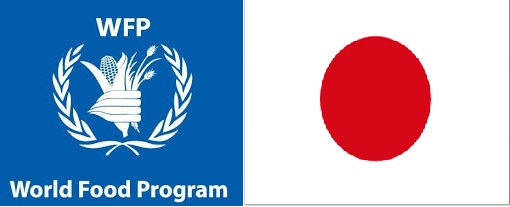 The World Food Programme (WFP) is partnering the Japanese Government to roll out an additional high impact intervention project to tackle the increasing micro-nutrient deficiency rates causing stunting in children under five and anaemia in older children and women in Northern Ghana.
The World Food Programme (WFP) is partnering the Japanese Government to roll out an additional high impact intervention project to tackle the increasing micro-nutrient deficiency rates causing stunting in children under five and anaemia in older children and women in Northern Ghana.
Ms Mutinta Chimuka, Country Director, World Food Programme (WFP) said 57 per cent of children and 59 per cent of women suffered anaemia whilst 19 per cent of children aged less than five were stunted as a result poor nutrition.
“Added to the already alarming situation is the fact that as many as three out of every ten children in the Northern Ghana had their growth stunted and this could be blamed on food insecurity as well as ignorance of right food choices”, she added.
Ms Mutinta said affected children risked losing forever their cognitive and some physical abilities and are also feared not to reach their full productive potential in future
The Country Director who was addressing a stakeholders’ meeting held in Accra on need for updated nutrient database in Ghana said owing to this the WFP receiving funds from the Japanese government, has expanded its nutritional support base to 10 vulnerable Districts in the Northern part of the country.
Currently, WFP supports the government to assist over 60,000 mothers and children with nutrition interventions, but the growing rate has called for an additional move.
The meeting organized by the WFP sought to present the work which WFP and its partners had done so far in that area, while offering a platform to build consensus on the need for concerted efforts to update Ghana’s nutrient database and the way forward.
“Development of Nutrition and Agricultural Strategies to Address Malnutrition in Ghana: The Role of Up-To-Date Food Composition Databases”, was the theme for the meeting.
Ms Mutinta said the Central Gonja and Talensi-Nabdam, the worst two of the ten selected districts, where as many as four out of ten people are food insecure, has been targeted for improved impacts.
The programme, she said would aim at educating the citizens to have a better understanding of the nutrient composition of local foods in the communities and the implications of their food choices.
“They will be able to make informed decisions on what to eat to improve their families’ nutritional status,” she added.
Mrs Vera Lugutuah Kwara, Programme Officer, WFP, said it was the aim of WFP to encourage the adoption of healthy behaviors including those for infants and young children, nutrition of school aged children and mothers.
Source: GNA























